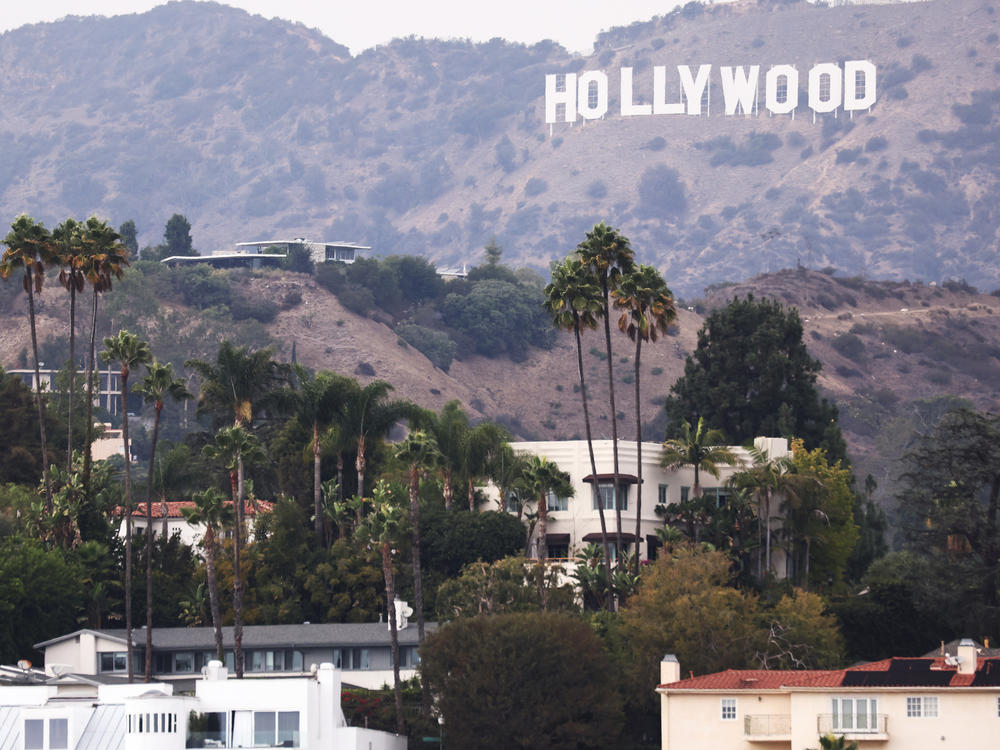Section Branding
Header Content
Hollywood crew members reach a tentative deal with major studios, averting a strike
Primary Content
Updated October 16, 2021 at 9:58 PM ET
Hollywood crew members and major studios have averted a nationwide strike that would have shut down much of film and TV production. The tentative agreement must still be ratified by the union's members.
According to IATSE, the International Alliance of Theatrical Stage Employees, the new three year contract with the Alliance of Motion Picture and Television Producers (AMPTP) includes giving a "living wage: for the lowest paid earners in the union, improved wages and working conditions for streaming, retroactive wage increases of three percent annually, increased meal penalties, daily rest periods of 10 hours, weekend rest periods of 54 hours" and "significant increases in compensation to be paid by new-media companies." In addition, IATSE reports that union workers will get Martin Luther King Jr's birthday added as a holiday. And the union says there are new diversity, equity and inclusion initiatives. On IATSE's website, President Matt Loweb said, "This is a Hollywood ending. "
Earlier this month, crew members in the union IATSE, voted to authorize a strike if they couldn't reach a deal with the AMPTP. They'd been negotiating over pay, work schedules and more since May. A strike would have effectively shut down much of the film and TV production in the country. The union announced today that they've reached a deal.
At issue were quality of life issues and the health and safety of those who work behind the scenes in the film and television industry. That includes cinematographers, lighting technicians, makeup artists and the food workers who feed the casts and crews.
In recent weeks, many have been sharing their stories on social media, where some have complained of grueling call times that cause sleep deprivation and little time to be with their families. Some were asking to be compensated more for productions that are streamed online and not released theatrically. They've been working with lower rates since 2009, when the streamers were just beginning.
The arts and entertainment industries have been hit particularly hard by the pandemic. According to a recent report by Americans for the Arts, 63% of artists and creative workers were unemployed at the height of the pandemic in 2020.
Copyright 2021 NPR. To see more, visit https://www.npr.org.

